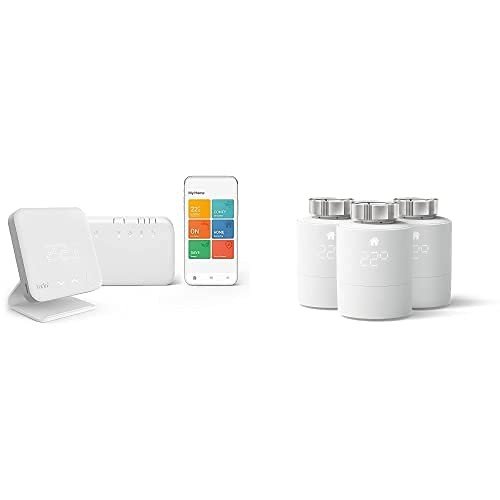Think You're Ready To Start Industrial Lamps UK? Take This Quiz
Industrial Lamps in the UK: Illuminating Industries and Workspaces
In an age where efficient lighting services play a pivotal function in boosting productivity and safety in numerous industrial settings, industrial lamps have actually become necessary tools for factories, warehouses, workshops, and more. The UK's market for industrial lighting is rapidly developing, driven by improvements in innovation, a growing concentrate on energy performance, and rigid security guidelines. Buy Lighting Fixtures UK explores the various types of industrial lamps offered in the UK, their applications, and the considerations that need to be made when choosing the proper lighting solutions for industrial environments.
Comprehending Industrial Lamps
Industrial lamps are developed specifically for usage in a range of industrial settings. They provide the required illumination while likewise considering the unique difficulties positioned by such environments, consisting of dust, wetness, high ceilings, and variable temperature levels. Industrial lamps can be found in numerous forms, including LED, fluorescent, and metal halide lighting, each with its own set of qualities and advantages.
Kinds Of Industrial Lamps
LED Industrial Lamps:
- Description: LED (Light Emitting Diode) industrial lamps are energy-efficient, lasting, and provide exceptional lighting.
- Advantages:
- Energy efficiency (up to 80% less energy consumption)
- Long life expectancy (approximately 50,000 hours)
- Low heat emission
- Immediate brightness with no flickering
- Applications: Factories, warehouses, and construction sites.
Fluorescent Industrial Lamps:
- Description: These lamps give off light through the excitation of gas, commonly used in environments needing uniform lighting.
- Advantages:
- Good color rendering
- Cost-efficient
- Various shapes and sizes
- Applications: Workshops, garages, and assembly lines.
Metal Halide Industrial Lamps:
- Description: This type of gas discharge lamp produces a bright, white light and is frequently utilized in big areas.
- Advantages:
- High strength and brightness
- Outstanding for sports locations, parking lots, and large industrial centers
- Applications: Warehouses, filling docks, and outdoor locations.
Comparison Table of Different Types of Industrial Lamps
Lamp Type
Energy Efficiency
Life expectancy
Brightness
Application Areas
LED Industrial Lamps
As much as 80%
Up to 50,000 hours
Very High
Factories, Construction Sites
Fluorescent
Moderate
7,000 – 15,000 hours
Moderate to High
Workshops, Garages
Metal Halide
Moderate
15,000-20,000 hours
High
Storage Facilities, Outdoor Areas
Choosing Industrial Lamps
When choosing industrial lamps, numerous aspects need to be thought about. These consist of:
Type of Application: Different locations have varying lighting needs. For example, high-precision tasks may need brighter, more concentrated lighting compared to basic work space lighting.
Energy Efficiency: With increasing energy expenses and environmental concerns, picking lamps with high energy effectiveness can cause substantial expense savings with time.
Lifespan: Longer-lasting lamps reduce maintenance costs and downtime, making them preferable in busy industrial settings.
Safety Standards: Compliance with security regulations is essential. Industrial lamps should be developed to withstand extreme conditions, consisting of moisture, dust, and effects.
Expense: While in advance expenses matter, the long-term savings achieved via energy-efficient and lasting lamps should likewise be considered.
Benefits of Appropriate Industrial Lighting
Enhanced Safety: Proper lighting reduces the danger of mishaps and injuries in industrial environments.
Increased Productivity: Adequate lighting promotes much better visibility, aiding in the performance of workers.
Expense Savings: Energy-efficient lamps lead to lower electrical power bills and less regular replacements.
Enhanced Quality Control: Good lighting allows for much better assessment processes, ultimately boosting product quality.
Often Asked Questions (FAQs)
Q1. How do I determine the best type of industrial lamp for my facility?A1. Evaluate the particular lighting needs and conditions of your facility. Consider elements such as the tasks being carried out, the size of the area, and any regulatory requirements.
Q2. Are LED lights worth the financial investment in an industrial setting?A2. Yes, LED lights provide significant long-lasting cost savings due to lower energy usage and longer life-spans, making them an economical choice in the long run.
Q3. Can I install industrial lamps myself?A3. While some individuals may have the abilities to set up lamps, it is often suggested to employ a qualified electrical contractor to ensure compliance with security standards and local guidelines.
Q4. What upkeep is needed for industrial lamps?A4. Regular assessments for damage, cleaning of lights, and timely replacement of faulty lamps are vital to maintain optimum efficiency.
Q5. What are the most recent trends in industrial lighting innovation?A5. Advances in smart lighting systems, consisting of IoT (Internet of Things) integration and advanced energy management services, are at the leading edge of industrial lighting development.
The ideal industrial lamps are vital to ensuring security, productivity, and expense efficiency in numerous industrial settings. The UK market offers a variety of lighting options, from LED lamps to fluorescent and metal halide choices, each ideal for various applications. By understanding the functions and benefits of these lighting types and taking crucial considerations into account, services can make informed choices that will brighten their offices successfully while optimizing performance and saving expenses. Buying the ideal industrial lighting not just improves overall ambiance however also promotes a much safer and more productive workplace.
